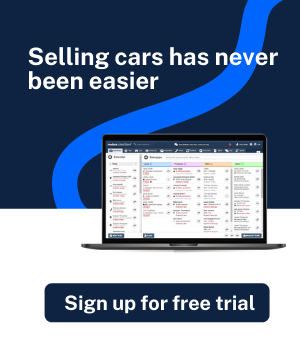
2020 has been a tough year for everyone, with every industry facing its own set of challenges. Due to the Covid-19 pandemic, the automotive industry wasn’t spared either. For example, closure of plants in China interrupted manufacturing, while purchase of new cars decreased drastically. Automotive retail was affected globally as most countries went into stringent lockdowns.
A long time in the offing…
Even though we can partly blame the pandemic for problems faced by the automotive industry, these issues were already underway. 2020 hasn’t fundamentally altered the trajectory of automotive retail or manufacturing. The industry was sitting at a crossroads anyway. As of now, it is imperative to accommodate changes in consumer behavior and expectations, in order to ensure continued success beyond 2021. In the post-Covid era, the automotive industry should look towards finding long-term solutions to both existing and new challenges. Reactive measures for immediate relief won’t work anymore. That is why automotive retail software is necessary to resolve some of the issues that are plaguing dealerships.
Here are the major challenges faced by automotive retail today:
1. Online sales
Even before social distancing, online sales had already become a crucial aspect in the industry. A whopping 80% of buyers were starting their purchasing journey online as early as 2018. Even though dealerships remain an important part of the purchasing process, Covid-19 restrictions have accelerated the need for 100% digital purchasing options.

But buying a car online isn’t as simple as most e-commerce purchases. For instance, you can’t “return” a vehicle if you don’t like it. The amount of money being transacted is also quite high. Things get complex when online sales conflict with conventional attribution structures. Purchasing a car is a multi-channel process. It involves visiting dealerships, taking test drives, researching reviews, and finally buying from any number of different touchpoints.
Brands should focus on using automotive retail software to establish a solid presence online. Information should be shared between online and in-person channels. The software makes it convenient for customers to engage with online resources and then visit a dealership. An omni-channel sales strategy is the need of the hour. Dealerships are an essential part of the online sales journey, because customers will still visit the facility after starting the purchase process. Using automotive retail software makes the transition from online to in-person, smooth and simple.
2. Network contractions and remote operations
Did you know network contractions were underway before Covid-19? For instance, Honda was working on plans to cut down on its 100+ dealerships in Australia due to low profitability. Even though Ford has the biggest dealership network in the UK and boasts of over 400 showrooms, it is looking to reduce the number in half by 2025. Many networks shut down completely during the pandemic, while others transitioned to remote operations. But managing employees remotely, while maintaining quality control is a huge hurdle for automotive retail.

An automotive retail software can help to assess the performance of each dealership. It is crucial for determining if the facility should be maintained or shut down. There are various data points to consider, like number of cars being sold at the dealership each year, along with losses. However, it isn’t as simple as looking at the sales total for each dealership. For example, one facility might critically contribute to a sale, but it ends up being closed online or at another dealership.
An automotive retail software can provide the necessary data and insight that makes these decisions easier. It can help with remote employee management too. For instance, integrating KPI tracking and communication tools within business intelligence, is being implemented everywhere. The right tools make the process seamless and hassle-free.
3. Technology and rights of ownership
Car dealers are racing to catch up to car-sharing and autonomous vehicle revolutions. Till now, they aren’t sure how it will impact their businesses. Few experts predict retail vehicle sales might drop further, while others have more optimistic views. It is all about reinventing businesses in order to discover new opportunities and revenue streams.

These factors need to be taken into account:
- Utilization rate of shared vehicles is high, so their replacement frequency is more too, which means extra business for dealerships.
- A majority of customers want to own and drive vehicles themselves. Many aren’t keen on shared-mobility rides even if they are free.
- There has been a significant increase in number of cars per household.
Dealerships have to accept the changes in the automotive industry and invest time to understand what customers prefer and need. If you notice that consumers are gradually shifting to self-driving cars, and steering away from traditional car manufacturers, you have to embrace the trend. The software is equipped with business intelligence tools to understand customer behavior analytics. This data can then be leveraged to give you a single view of the customer. The dealership can then create compelling offers exclusively based on their requirements, during the sale and ownership cycle. It helps provide a transformational experience, which includes innovative financing options and hassle-free drop-off/pick-up services.
Any business is bound to face challenges at the end of the day. The automotive industry has its own share of troubles with problems like environmental pressure, CO2 emissions, safety issues that lead to recalls, and vehicle weight reduction. Technology like an advanced automotive retail software is a must now, so businesses can understand customers better, make operations more streamlined, enhance efficiency, and boost performance.
If your dealership is looking for automotive CRM take a look at Modera Salesfront or if you are looking for ways to start or expand your dealership online presence, Modera Ecommerce is perfect for you!
_____________________
Cover image Pexels

